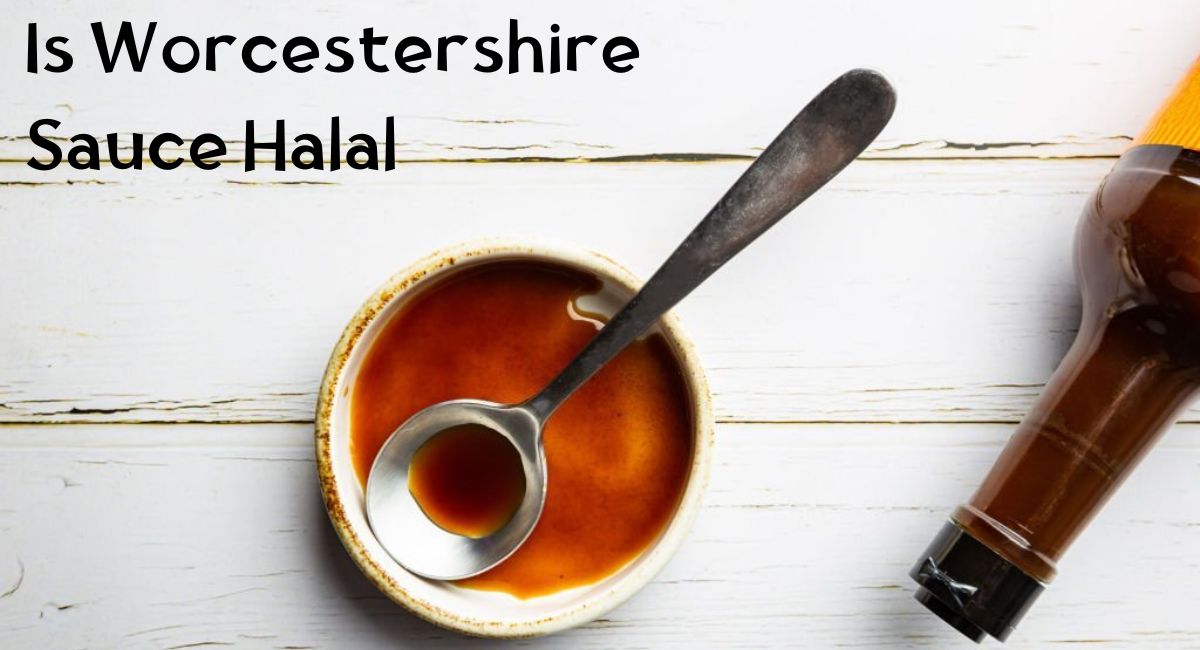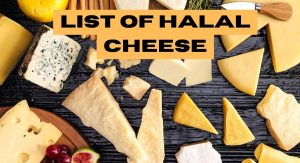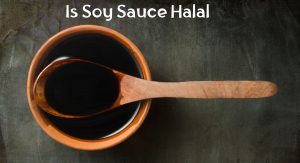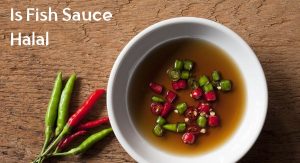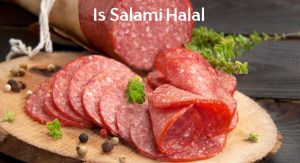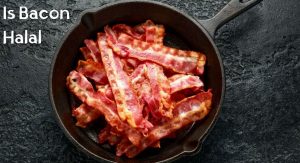Worcestershire sauce, with its distinct and robust flavor, has long been a staple condiment in kitchens around the world. Originating from the English county of Worcestershire, this savory sauce adds a unique umami kick to a wide range of dishes, from marinades and dressings to soups and stews. However, for those who adhere to Halal dietary restrictions, ensuring the ingredients and production process align with their beliefs is of utmost importance.
In this article, we explore the fascinating world of Worcestershire sauce from a Halal perspective. We will delve into its traditional ingredients, examine common concerns regarding its Halal status, and shed light on the availability of Halal-certified Worcestershire sauce options. By gaining a deeper understanding of this beloved condiment’s Halal suitability, we aim to empower individuals to make informed choices while enhancing their culinary experiences within the boundaries of their faith.
Is Worcestershire Sauce Halal
Yes, traditional worcestershire sauce is halal since it does not contain any haram ingredients like pork and alcohol.
However, it is crucial to check the label or verify the halal certification of the specific brand and product you intend to use, as different brands may have different ingredients and manufacturing processes that could affect their halal status.
Additionally, halal certification can vary by country and certification body, so it’s advisable to refer to local halal certification authorities or organizations for the most accurate and up-to-date information regarding halal certification in your region.
Is Lea and Perrins Worcestershire Sauce Halal
Lea & Perrins Worcestershire Sauce has been an iconic and beloved condiment since its creation in 1837. With its expertly blended ingredients and unique full flavor, it has been enriching meals around the world for over 180 years. From humble beginnings to becoming a household name, Lea & Perrins has maintained its commitment to quality and taste, making it a staple in kitchens worldwide.
What sets Lea & Perrins Worcestershire Sauce apart is its meticulous crafting process. The sauce’s distinctive flavor is achieved through a carefully selected blend of ingredients that undergo an 18-month maturation period. This lengthy process allows the flavors to develop fully, resulting in a unique taste that elevates a variety of dishes.
The versatility of the sauce knows no bounds. Its rich umami flavor profile enhances the taste of countless dishes, from traditional English favorites to global cuisines. Whether you’re marinating meats, seasoning stir-fries, enhancing soups and stews, or adding a dash to your favorite cocktails, Lea & Perrins Worcestershire Sauce brings an extra depth of flavor to every bite.
The key ingredients of Lea & Perrins Worcestershire Sauce include malt vinegar, spirit vinegar, molasses, sugar, salt, anchovies (fish), tamarind extract, onions, garlic, spice, and flavorings. This expert combination creates a harmonious balance of sweet, tangy, and savory notes that complement a wide range of culinary creations.
While most ingredients included in the sauce are halal, the presence of spirit vinegar raises concerns. The status of spirit vinegar is a matter of differing opinions among scholars. Some consider it halal, while others have reservations.
Spirit vinegar is produced through the fermentation of distilled alcohol, and the question arises regarding the transformation of alcohol into vinegar, which may change its status. It is recommended to consult with knowledgeable scholars or halal certification authorities for clarification.
Also, according to this tweet from the brand itself, Lea and Perrins Worcestershire Sauce is not considered halal. Therefore, it should not be consumed by those following a halal diet.
Is Holbrooks Worcestershire Sauce Halal
Holbrooks Worcestershire Sauce owes its success to a well-loved recipe that has been passed down through generations. Crafted with care, this sauce is a testament to the enduring culinary traditions that have shaped Australian cuisine.
At the heart of Holbrooks Worcestershire Sauce lies a commitment to using only the finest ingredients. Each component is carefully selected to ensure the sauce delivers an exceptional taste experience.
From premium vinegars and molasses to an array of aromatic spices, every ingredient contributes to the sauce’s rich and versatile flavor profile. This dedication to quality guarantees that Holbrooks Worcestershire Sauce consistently meets the high standards of discerning palates.
The distinctive flavor of Holbrooks Worcestershire Sauce is a symphony of tastes that enhances a wide range of dishes. Its deep, umami-rich profile adds a delightful complexity to meat and vegetable dishes, making it an essential ingredient in marinades, stews, and stir-fries.
Furthermore, the sauce’s tangy and savory notes make it a beloved topping for eggs, steak, and chips, allowing it to bring a burst of flavor to every bite.
The sauce contains the following ingredients:
- Water
- Vinegar (barley & wheat)
- Brown sugar
- Golden syrup
- Anchovies
- Salt
- Tamarind
- Spices
- Colour (150c)
- Onion powder
- Garlic powder
- Flavour
Considering that none of the ingredients listed above are haram, it can be concluded that Holbrooks Worcestershire Sauce is halal.
Is Heinz Worcestershire Sauce Halal
Heinz Worcestershire Sauce traces its origins back to an old English recipe that has been carefully handed down through generations. This sauce is a testament to the art of combining the finest ingredients and aging them to perfection. Crafted with precision and expertise, Heinz Worcestershire Sauce captures the essence of tradition while delivering a modern culinary experience.
One of the key features that sets Heinz Worcestershire Sauce apart is its distinctive flavor. The aging process allows the ingredients to meld together, resulting in a rich and smooth flavor that enhances the taste of any dish.
At the heart of Heinz Worcestershire Sauce lies a carefully curated selection of high-quality ingredients.
- Distilled White Vinegar
- Water
- Molasses
- Salt
- High Fructose Corn Syrup
- Soy Sauce (Water, Soybeans, Salt, Alcohol)
- Caramel Color
- Anchovies
- Corn Syrup
- Natural Flavorings
- Polysorbate 80
- Soy Flour
Distilled white vinegar provides the tangy base, while molasses adds a touch of sweetness and depth. The inclusion of soy sauce, made from soybeans and aged to perfection, adds a savory umami flavor that enhances the overall taste profile. Anchovies, with their unique and distinct essence, contribute to the sauce’s complexity.
While most ingredients included in Heinz Worcestershire Sauce are halal, the presence of alcohol can make some Muslims apprehensive about consuming it.
Some sources state that soy sauce with alcohol content is considered halal as long as it does not intoxicate a person.
However, if the alcohol used in making soy sauce is derived from grapes, dates, or raisins, some argue that it is haram. The alcohol content in soy sauce is typically low (around 2-3%) and is a result of the fermentation process.
Some Muslims consider this small amount of alcohol to be insignificant and do not deem it as a reason for it to be haram. However, there are also sources that consider naturally brewed soy sauce, which contains alcohol, to be haram.
To ensure compliance with Islamic dietary guidelines, it is advisable to look for soy sauce labeled as halal or seek guidance from reliable halal certification authorities. Ultimately, individuals should consult knowledgeable scholars or halal certification authorities for specific and accurate rulings based on their circumstances.
List of Halal Worcestershire Sauces
| Brand | Product Name | Status |
|---|---|---|
| Winco Foods | WORCESTERSHIRE SAUCE | Halal |
| Western Family | WORCESTERSHIRE SAUCE | Halal |
| Weis | WORCESTERSHIRE SAUCE | Halal |
| Shurfine (Topco) | WORCESTERSHIRE SAUCE | Halal |
| Price Chopper | WORCESTERSHIRE SAUCE | Halal |
| Our Family | WORCESTERSHIRE SAUCE | Halal |
| Key Food | WORCESTERSHIRE SAUCE | Halal |
| Hy-Top | WORCESTERSHIRE SAUCE | Halal |
| Heinz | Worcestershire Sauce | Halal |
| Food Club | WORCESTERSHIRE SAUCE | Halal |
| Essential Everyday | WORCESTERSHIRE SAUCE | Halal |
| Elwood | Dietetic Worcestershire Sauce | Halal |
| Crystal | Worcestershire Sauce | Halal |
| Crystal | WORCESTERSHIRE SAUCE | Halal |
Halal Worcestershire Sauce Recipe
Here is a recipe for homemade halal Worcestershire sauce:
Ingredients
- 2 cups distilled white vinegar
- 1/2 cup molasses
- 1/2 cup soy sauce
- 1/4 cup tamarind concentrate
- 3 tbsp. yellow mustard seeds
- 3 tbsp. kosher salt
- 1 tbsp. ground ginger
- 1 tbsp. ground cinnamon
- 1 tbsp. ground black pepper
- 1 tbsp. ground cloves
- 1 tbsp. ground cardamom
Instructions
- In a large saucepan, combine all ingredients and bring to a boil.
- Reduce heat and simmer for 1 hour, stirring occasionally.
- Remove from heat and let cool.
- Strain the mixture through a fine-mesh sieve into a clean jar or bottle.
- Store in the refrigerator for up to 6 months.
What is Worcestershire Sauce
Worcestershire sauce is a fermented liquid condiment that is made from a variety of ingredients such as anchovies, tamarind, garlic, onions, molasses, and vinegar. It has a dark color and a complex savory flavor that is often described as umami. It is commonly used in marinades, dressings, and sauces such as Caesar salad dressing and cocktail sauce.
The origin of Worcestershire sauce can be traced back to the early 1800s in Worcestershire, England. The sauce was created by two chemists, John Wheeley Lea and William Henry Perrins, who were experimenting with various ingredients to create a savory sauce for their clients. They eventually stumbled upon the perfect combination of ingredients and began selling their creation in small batches.
It wasn’t until a few years later, when a local businessman named Lord Marcus Sandys tasted the sauce while on a trip to Bengal, that Worcestershire sauce became popular. Lord Sandys loved the sauce and brought a bottle back to England with him. He began serving it at social gatherings and soon the sauce became a must-have at every table.
Lea and Perrins continued to produce Worcestershire sauce from their factory in Worcester, England, and by the mid-1800s, the sauce had gained worldwide popularity. It was being exported to countries such as the United States and Australia, and it became a staple in kitchens around the globe.
Today, Worcestershire sauce is produced by numerous companies and it is a staple in many kitchens, both professional and home. It is also used as a key ingredient in many traditional dishes, such as the classic British dish, steak and kidney pie.
What is Worcestershire Sauce Made of
Worcestershire sauce is a popular condiment with a unique flavor profile. The exact ingredients can vary slightly depending on the brand and recipe, but the common ingredients found in Worcestershire sauce are:
- Malt Vinegar: Provides acidity and tanginess.
- Spirit Vinegar: Adds acidity and depth of flavor.
- Anchovies: Gives a savory and umami taste.
- Tamarind: Contributes a tangy and slightly sweet flavor.
- Garlic: Adds a pungent and aromatic element.
- Onions: Provides a savory and slightly sweet taste.
- Molasses: Imparts sweetness and richness.
- Sugar: Balances the flavors and adds sweetness.
- Salt: Enhances the overall taste.
- Spices: Various spices are used to create a complex flavor profile.
- Flavorings: Additional ingredients like cloves, chili pepper extract, and others may be added to enhance the taste.
How is Worcestershire Sauce Made
The production process of Worcestershire sauce involves several stages that lead to the development of the unique and complex flavor profile that characterizes this condiment.
- The first step in making Worcestershire sauce is mixing all the ingredients in the right proportions and allowing the mixture to ferment in a cool, dark place for a period that typically ranges from several weeks to months.
- During fermentation, the microorganisms present in the mixture produce enzymes that break down the ingredients and convert them into several organic acids, such as lactic, acetic, and citric acids, which give the sauce its distinctive tangy and sour taste.
- As the fermentation progresses, the flavors of the ingredients blend together and develop complexity. The process also allows the umami flavors of the anchovies and tamarind to develop, contributing to the savory and rich taste of the sauce.
- After fermentation, the mixture is aged for further development of flavors and to allow the harshness of some ingredients to dissipate. During this stage, the mixture is stored in barrels made of non-reactive materials, such as oak, and kept in a cool and dark place. The barrels are periodically shaken to ensure that the flavors are evenly distributed and to prevent the formation of sediment on the bottom.
- Once the aging process is complete, the mixture is strained through several layers of cheesecloth or a special filtering system to remove solid particles and achieve a smooth consistency. The resulting liquid is then bottled in dark glass containers that protect the sauce from light exposure and maintain its flavor integrity.
Bottled Worcestershire sauce can be stored for an extended period and continues to develop flavor over time, similar to wine and other aged products. The sauce is versatile and can be used as a condiment, marinade, or ingredient in various dishes, such as meat stews, casseroles, and soups. Its unique umami flavor and acidity are also well-suited for enhancing the taste of salads, gravies, and dressings.
What Do You Use Worcestershire Sauce for
Worcestershire sauce is a versatile condiment that adds a unique and savory flavor to a wide range of dishes. Here are some common ways to use Worcestershire sauce:
- Marinades: Worcestershire sauce is often used as a key ingredient in marinades for meats, poultry, and seafood. Its tangy and savory flavor helps enhance the taste of the marinade and infuse it into the food.
- Sauces and gravies: Worcestershire sauce can be added to sauces and gravies to give them a rich and umami flavor. It works well in barbecue sauces, tomato-based sauces, and brown gravies.
- Salad dressings: A splash of Worcestershire sauce can add depth of flavor to salad dressings. It pairs well with ingredients like mustard, vinegar, and olive oil, creating a tangy and savory dressing.
- Burgers and meatloaf: Mixing Worcestershire sauce into ground meat for burgers or meatloaf can enhance the flavor and juiciness of the meat. It adds a savory note that complements the meaty taste.
- Stir-fries and sautés: Worcestershire sauce can be used in stir-fries and sautés to add a savory kick. It works well with vegetables, meats, and noodles, providing a depth of flavor to the dish.
- Bloody Mary cocktails: Worcestershire sauce is a classic ingredient in Bloody Mary cocktails. It adds a savory and tangy element to the drink, enhancing its overall flavor.
It’s important to note that Worcestershire sauce contains anchovies, so it may not be suitable for those following a vegetarian or vegan diet. Additionally, the specific usage and proportions of Worcestershire sauce may vary depending on the recipe and personal preference.
Interested in the halal status of sauces with a salty, umami flavor profile resembling worcestershire sauce? Check out these articles
Is Soy Sauce Halal or Haram: Dive into the world of soy sauce and its halal status. Uncover the key factors that determine whether this popular condiment aligns with halal dietary guidelines.
Is Fish Sauce Halal or Haram: Explore the intriguing world of fish sauce and its compatibility with halal principles. Discover the complexities surrounding this flavorful ingredient in halal cuisine.
Is Oyster Sauce Halal or Haram: Delve into the savory realm of oyster sauce and its halal credentials. Learn about the considerations that go into determining whether this culinary delight is permissible in halal cooking.
Is Hoisin Sauce Halal Certified: Explore the rich and sweet world of hoisin sauce as it pertains to halal cuisine. Discover whether this delicious sauce meets the criteria for being considered halal.
Frequently Asked Questions
1. Does Worcestershire sauce have alcohol in it?
Worcestershire sauce does contain a small amount of alcohol. The fermentation process involved in making Worcestershire sauce results in the production of alcohol, but the final product typically contains less than 1% alcohol by volume.
2. Does Worcestershire sauce have pork in it?
No, Worcestershire sauce does not contain pork. The main ingredients of Worcestershire sauce include vinegar, anchovies, molasses, tamarind, onion, garlic, and various seasonings. Pork is not a component of Worcestershire sauce.
3. Is Worcestershire sauce kosher?
The most common form of Worcestershire sauce is not considered kosher because it contains anchovies, which are not kosher. However, there are kosher-certified versions of Worcestershire sauce available in the market that use alternative ingredients to replace the anchovies.
4. Is Worcestershire sauce vegan?
The traditional Worcestershire sauce contains anchovies, which makes it unsuitable for a vegan diet. However, there are vegan-friendly Worcestershire sauce alternatives available that use plant-based ingredients instead of anchovies.
5. What does Worcestershire sauce taste like?
Worcestershire sauce has a savory, tangy, and slightly sweet flavor profile. The combination of vinegar, anchovies, tamarind, and other seasonings gives it a unique and complex taste. It adds depth and richness to dishes without overpowering them.
6. Is Worcestershire sauce healthy?
Worcestershire sauce is used in small quantities, so its nutritional impact is generally minimal. It contains low amounts of calories, fat, and carbohydrates. However, it does contain sodium, so individuals on a low-sodium diet should use it sparingly. Worcestershire sauce also provides small amounts of vitamins and minerals from its ingredients, but it is not a significant source of nutrients.
